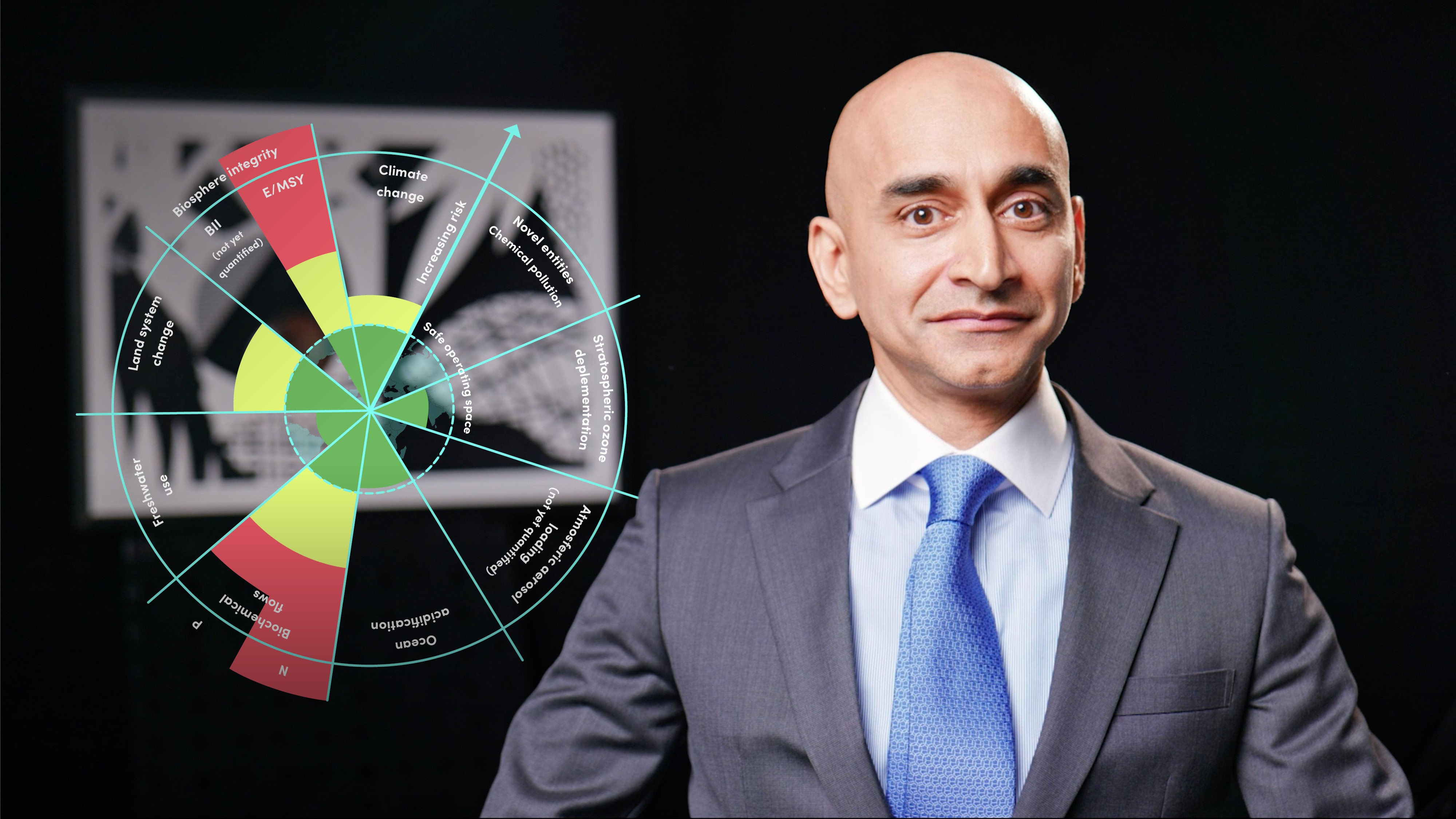
ESG Investment Market

Arun Kelshiker
20 years: Asset management and stewardship
In this video, Arun explains the significance of ESG investing in today's global financial landscape. He also covers the size of the sustainable investment market, valued at $35.3 trillion, and the challenges posed by greenwashing. He further discusses the importance of integrating ESG factors into investment decisions, addressing environmental and social challenges, and ensuring good corporate governance.
In this video, Arun explains the significance of ESG investing in today's global financial landscape. He also covers the size of the sustainable investment market, valued at $35.3 trillion, and the challenges posed by greenwashing. He further discusses the importance of integrating ESG factors into investment decisions, addressing environmental and social challenges, and ensuring good corporate governance.

ESG Investment Market
13 mins 17 secs
Key learning objectives:
Outline how big the sustainable investment market is
Understand why one should integrate ESG into investment decisions
Outline the challenges to the transition
Outline some of the key initiatives tackling the transition challenge
Overview:
The sustainable investment market, valued at around $35.3 trillion, represents 36% of professionally managed assets globally. As ESG investing gains popularity, greenwashing, or making misleading sustainability claims, becomes a challenge. Regulatory measures aim to combat greenwashing, while the Stockholm Resilience Centre and World Economic Forum highlight the importance of ESG factors. Challenges in implementing ESG include misconceptions about investment performance, fiduciary duty, and resource requirements. The UN plays a significant role in driving ESG investing through initiatives like the UN Global Compact and the Sustainable Development Goals.
How big is the sustainable investment market?
The ESG market is valued at around $35.3 trillion, representing 36% of professionally managed assets globally.
Institutional investors hold 75% of sustainable assets, while retail investors account for 25%, driven by increased interest in sustainability.
Greenwashing, or making misleading sustainability claims, poses challenges in the ESG space. Major scandals, like Volkswagen's "Dieselgate," have led to regulatory initiatives to combat greenwashing, such as the EU's SFDR, the UK's SDR, and Singapore's ESG disclosure requirements.
Why should ESG be integrated into investment decisions?
Integrating ESG into investment decisions is crucial as we face increasing environmental and social challenges. Environmental factors have significant implications for companies and stakeholders, while social factors address human rights, modern slavery, employee practices, and supply-chain responsibility. Good corporate governance ensures a company's effective and ethical operation. The UN Global Compact and Sustainable Development Goals guide businesses towards responsible practices. ESG integration is driven by client demand for transparency and accountability, regulatory frameworks, and financial reasons, including reduced costs, increased efficiency, and reduced risks. Investors benefit from better alignment with sustainability trends and stakeholder interests.
What are the key challenges that have hindered the incorporation of ESG factors into investment decisions?
Challenges pre-investment decision include:
- The idea that implementing ESG may have a negative impact on investment performance.
- The outdated concept that fiduciary duty prevents investors from integrating ESG.
- Outdated advice given by investment consultants and financial advisors.
Challenges post-investment decision include:
- Limited understanding of ESG-promoting investment mandates.
- Investor impression of resource-intensive ESG integration.
- Gaps between company presentation, commitment, and actual performance delivery are key challenges.
What initiatives are tackling the transition challenges?
Initiatives increasing the investment industry's ESG awareness include several UN initiatives such as the UN Global Compact, UNEP FI, PRI, UNFCCC, and UN Sustainable Development Goals.
Reporting initiatives standardise sustainability and non-financial reporting, such as ISSB, Value Reporting Foundation, CDP, GRI, TCFD, and TNFD. These initiatives aim to integrate ESG factors into investment processes and enhance transparency and accountability in the global financial landscape.

Arun Kelshiker
There are no available Videos from "Arun Kelshiker"

